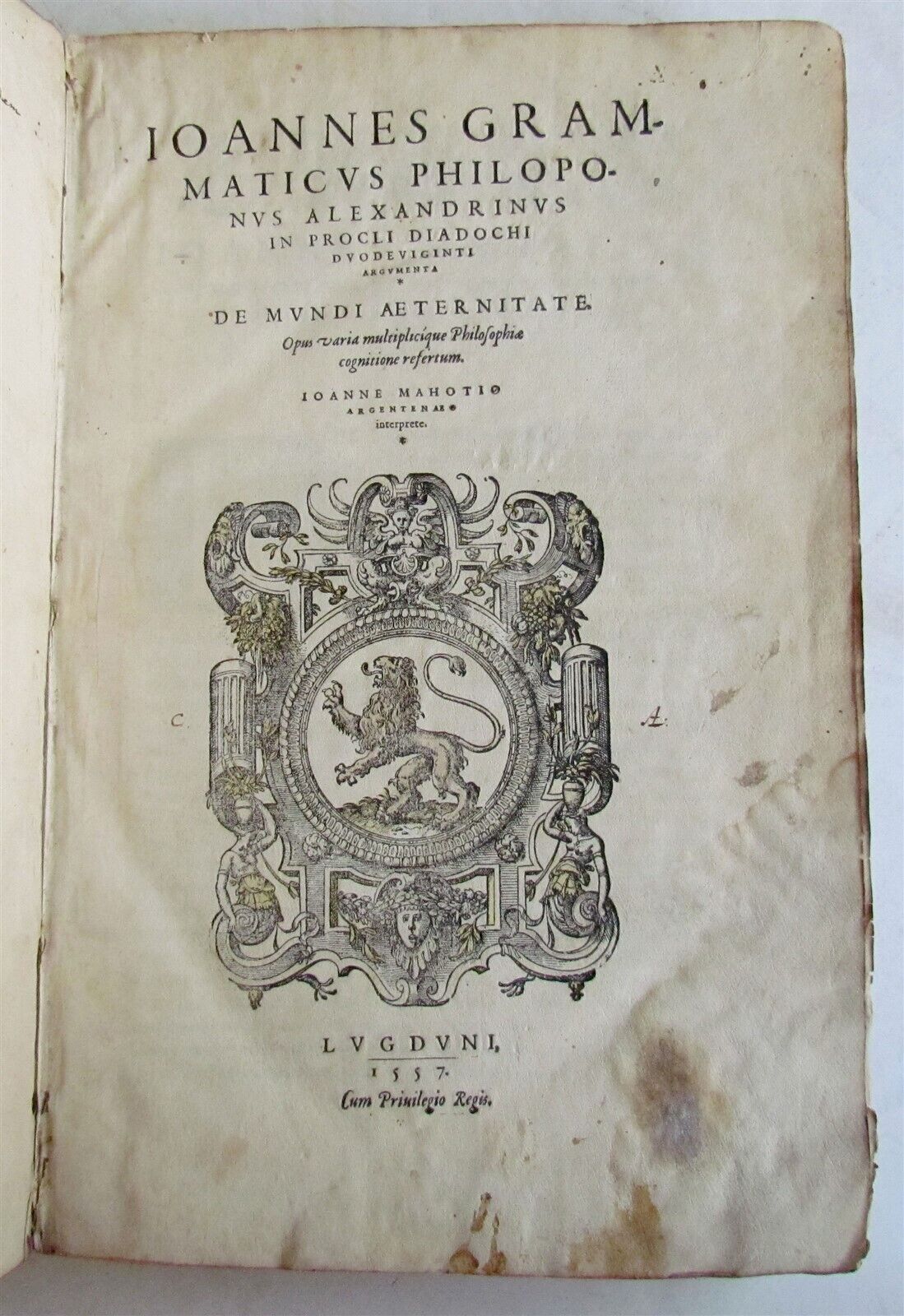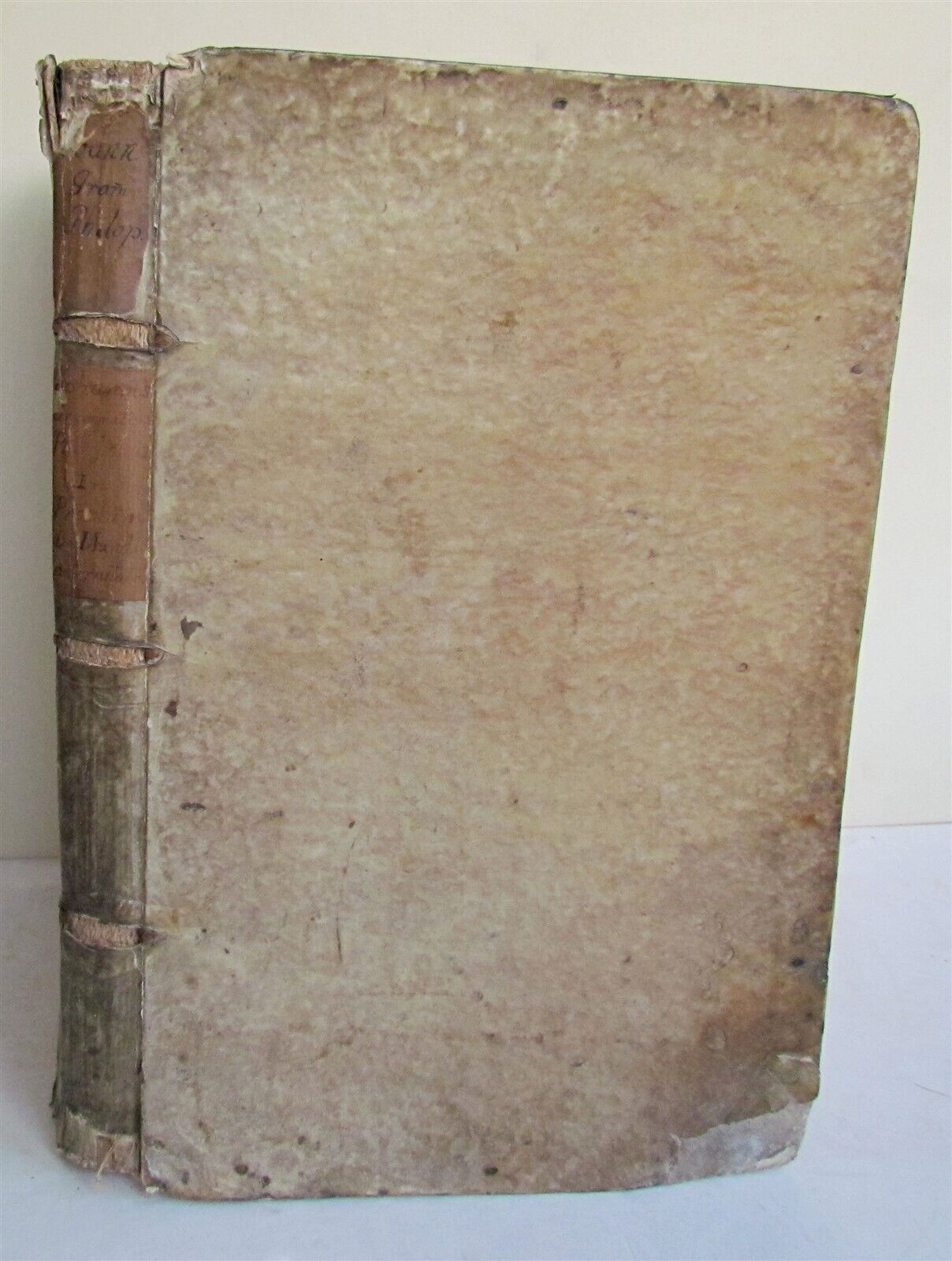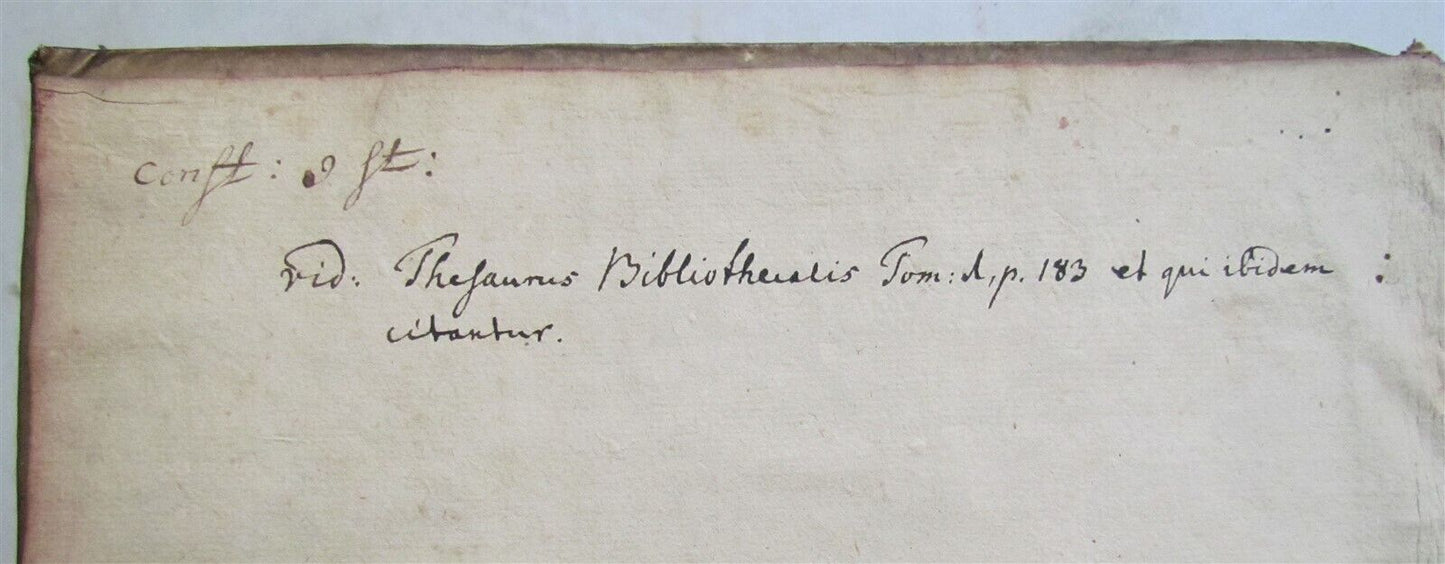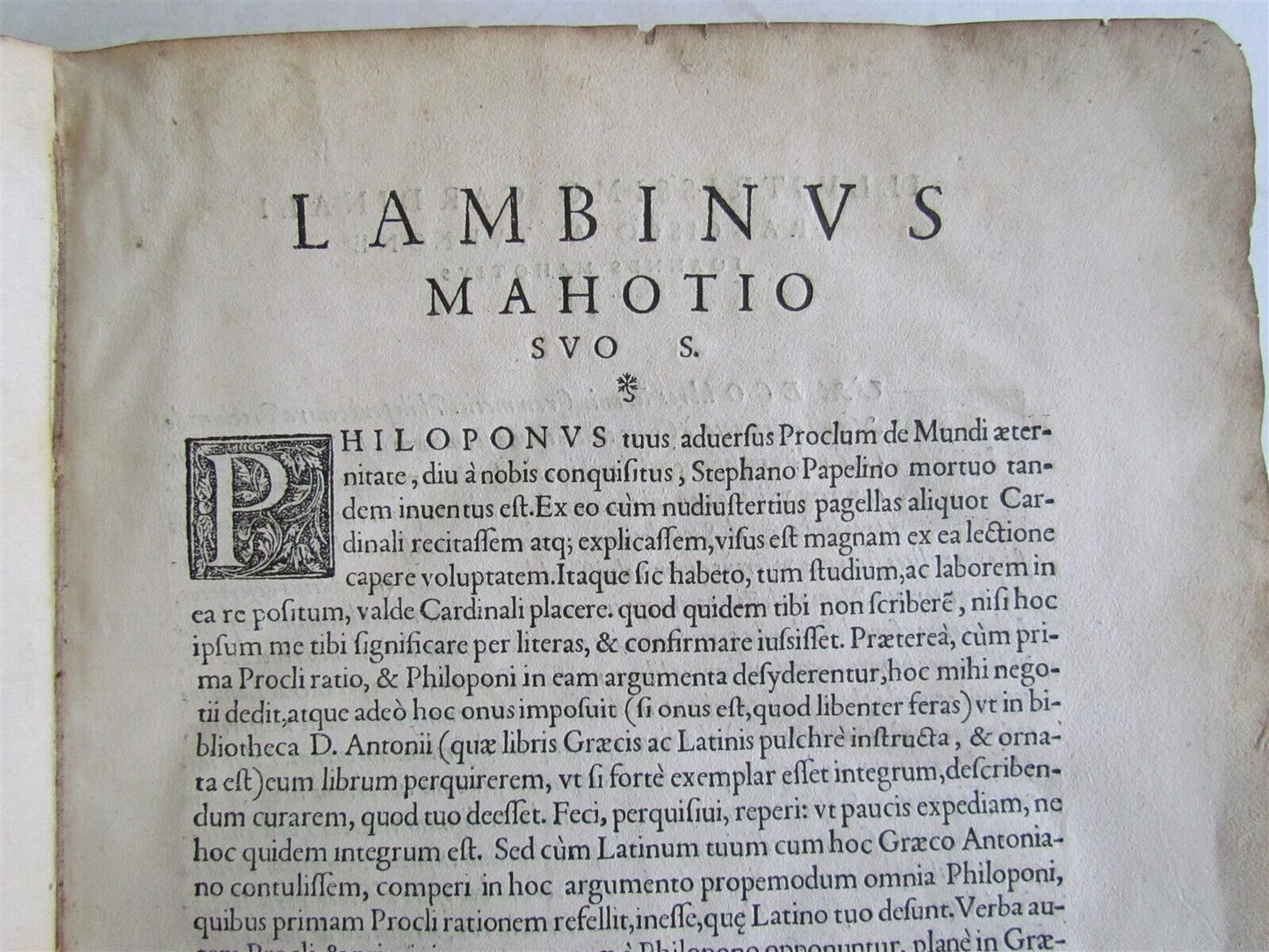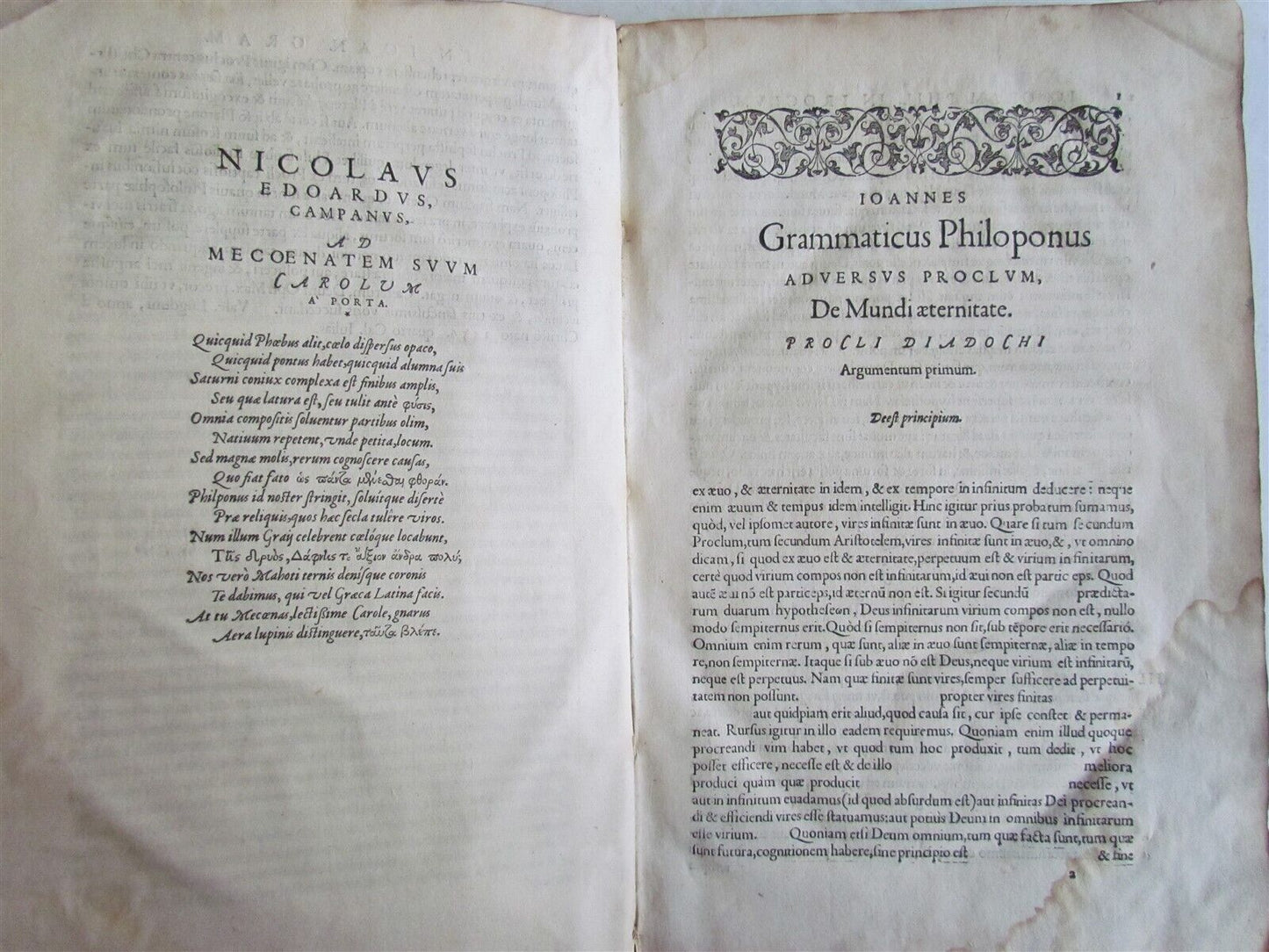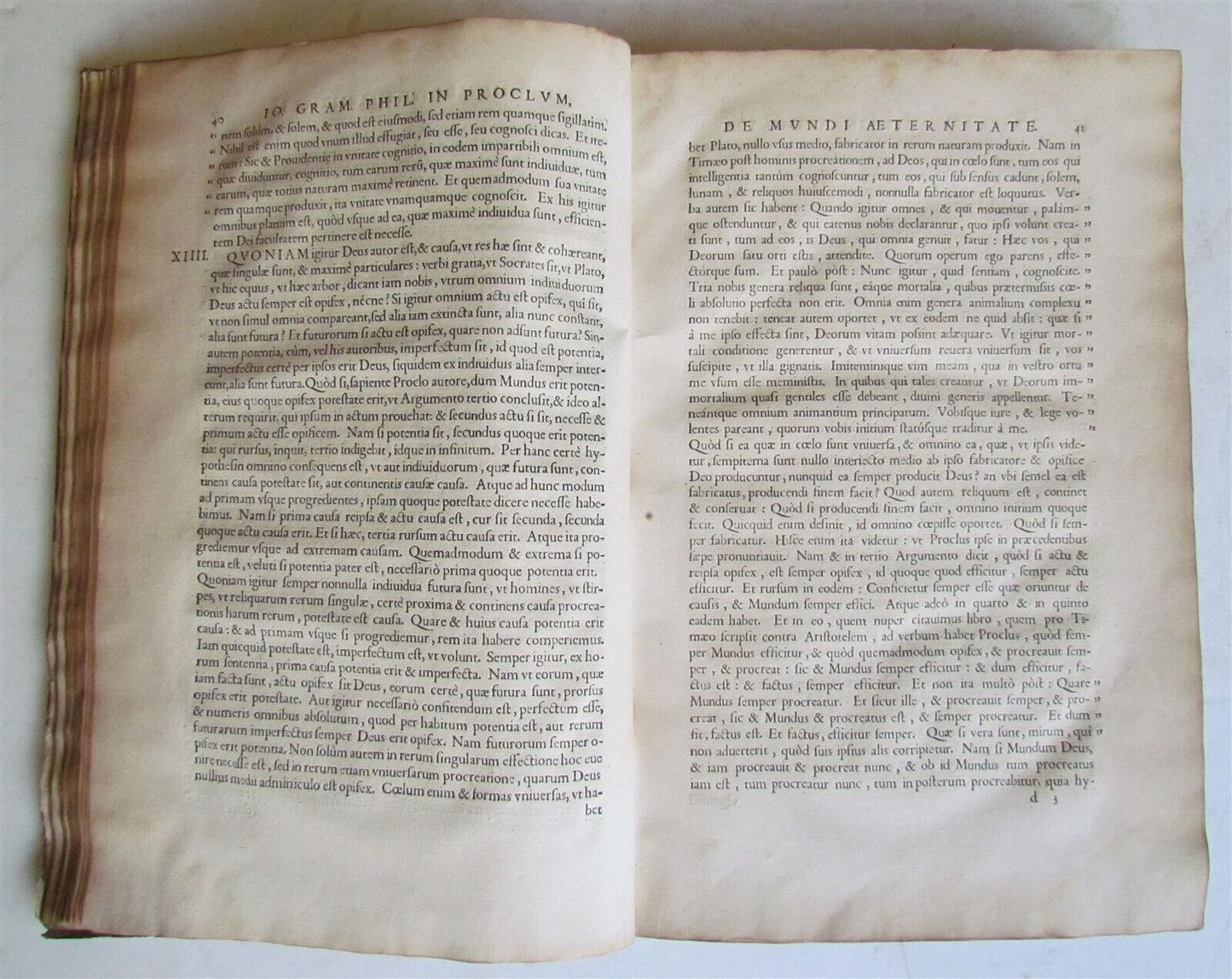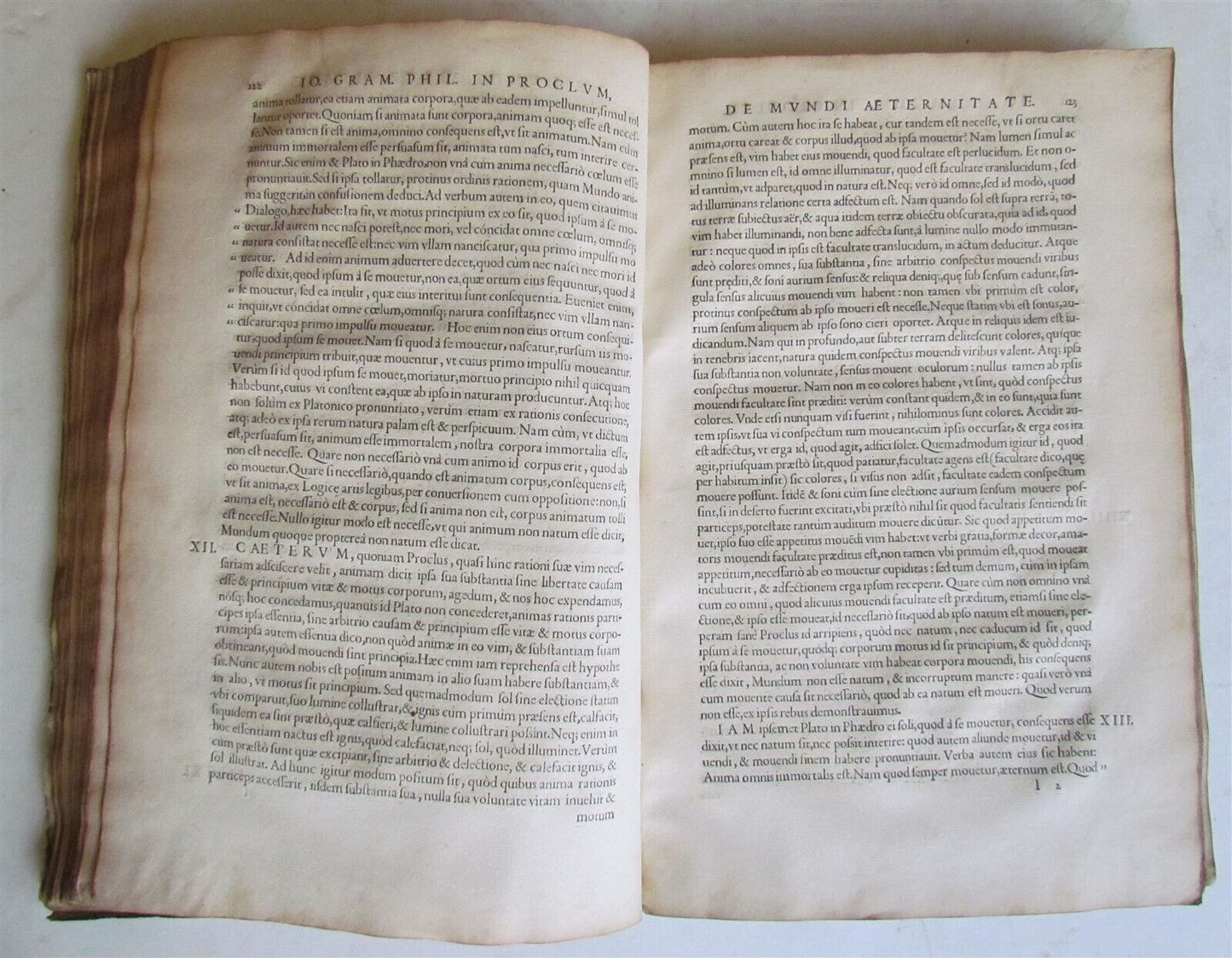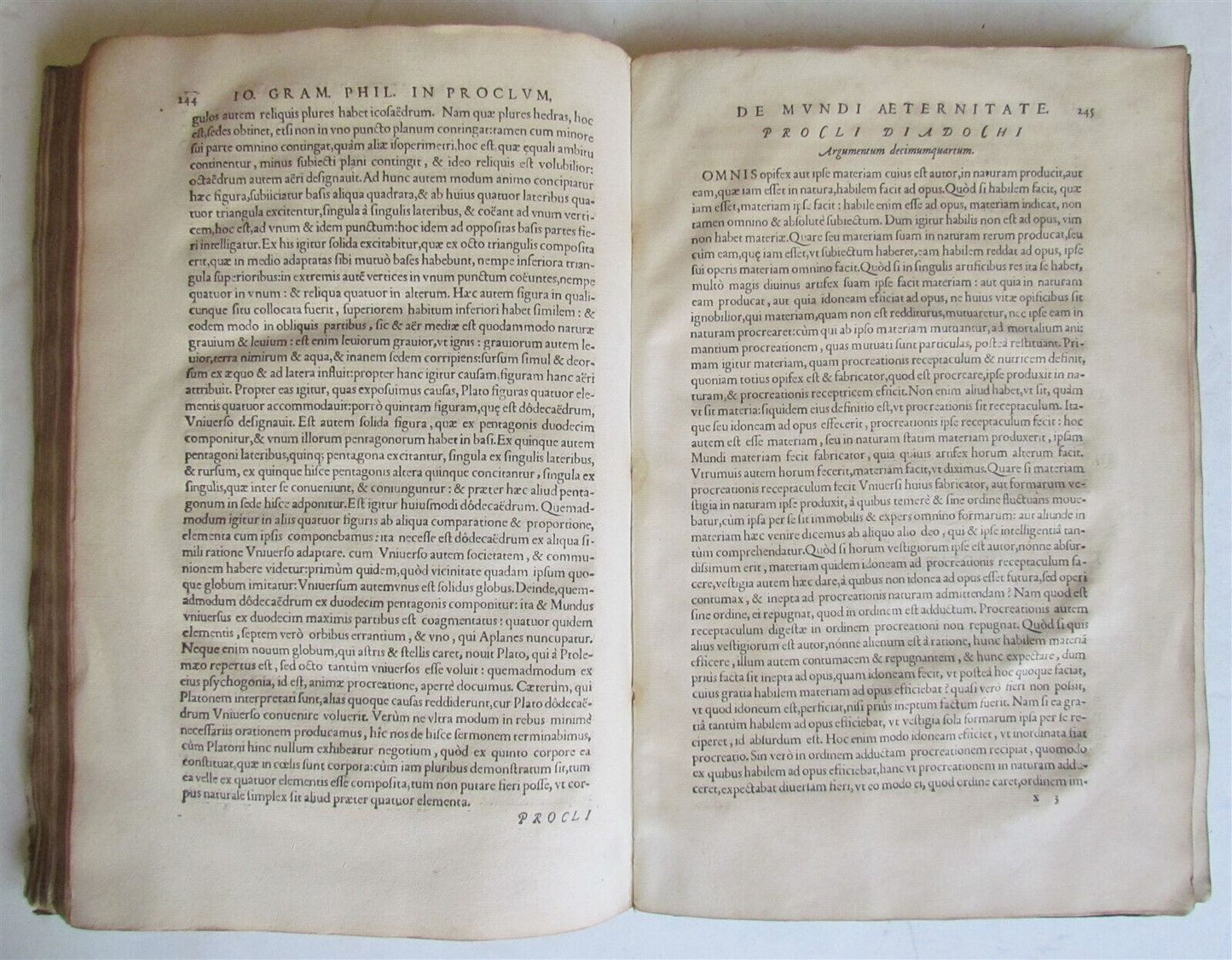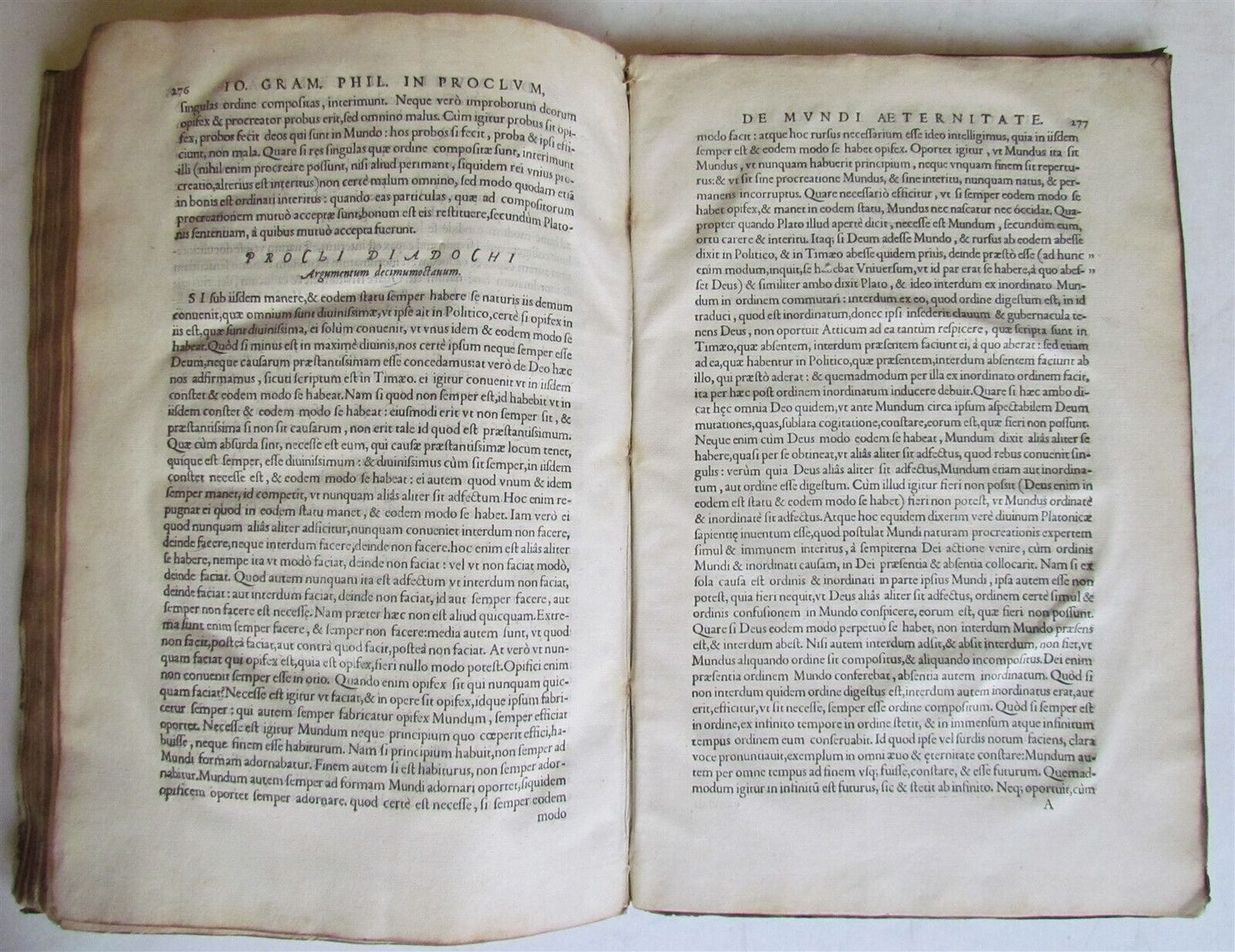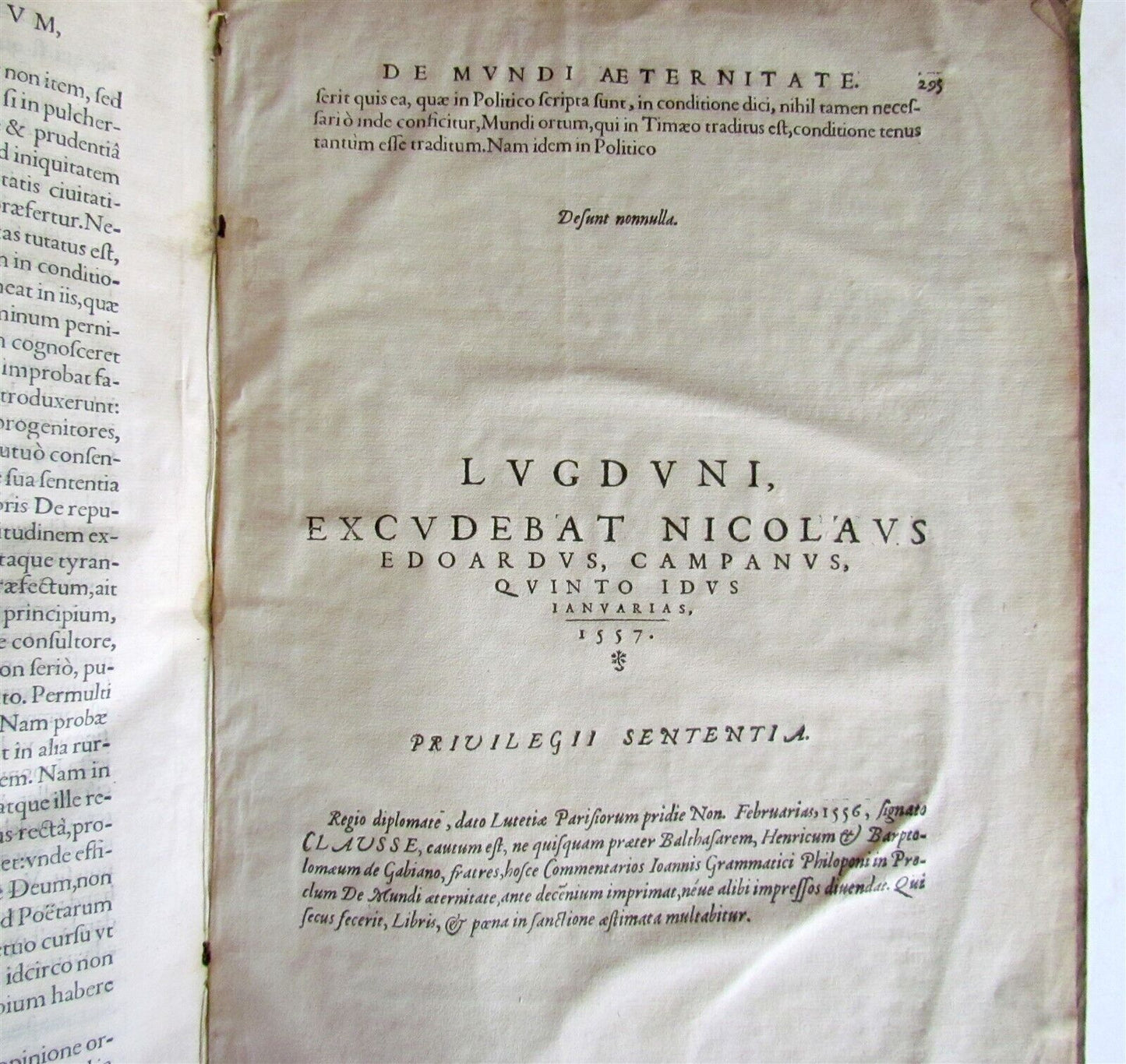Motka
1557 PHILOSOPHY by Philoponus Joannes Grammaticus ANTIQUE FOLIO vellum bound
1557 PHILOSOPHY by Philoponus Joannes Grammaticus ANTIQUE FOLIO vellum bound
Regular price
$552.99 USD
Regular price
$789.99 USD
Sale price
$552.99 USD
Unit price
per
Couldn't load pickup availability
Philoponus, Joannes Grammaticus (490-570 CE)
In Procli Diadochi Duodeviginti Argumenta. De Mundi Aeternitate.
Lyon: Nicolaus Edoard, 1557.
First edition, folio: 13 x 8 1/2 in.
295 pages
translated from Greek to Latin by Joannes Mahotius;
printer's woodcut device to title
bound in full original vellum, worn; stain to title page and following 30 pages.
Missing piece of vellum in lower right corner of the front cover
Text in Latin
Writing in opposition to Aristotelian physics, our author, also known as John the Grammarian, supports Christian creationism against the arguments of the Athenian Neoplatonist Proclus.
----------------------------------------
John Philoponus (c. 490 – c. 570), also known as John the Grammarian or John of Alexandria, was a Byzantine Greek philologist, Aristotelian commentator, Christian theologian and an author of a considerable number of philosophical treatises and theological works.
He was born in Alexandria. A rigorous, sometimes polemical writer and an original thinker who was controversial in his own time, John Philoponus broke from the Aristotelian–Neoplatonic tradition, questioning methodology and eventually leading to empiricism in the natural sciences. He was one of the first to propose a "theory of impetus" similar to the modern concept of inertia over Aristotelian dynamics.
Later in life Philoponus turned to Christian apologetics, arguing against the eternity of the world, a theory which formed the basis of pagan attacks on the Christian doctrine of Creation. He also wrote on Christology and was posthumously condemned as a heretic by the Church in 680–81 because of what was perceived as a tritheistic interpretation of the Trinity.
His posthumous condemnation limited the spread of his writing, but copies of his work, The contra Aristotelem, resurfaced in medieval Europe, through translations from Arabic of his quotes included in the work of Simplicius of Cilicia, which was debated in length by Muslim philosophers such as al-Farabi, Avicenna, al-Ghazali and later Averroes, influencing Bonaventure and Buridan in Christian Western Europe, but also Rabbanite Jews such as Maimonides and Gersonides, who also used his arguments against their Karaite rivals. His work was largely debated in the Arabic scholarly tradition, where he is known as Ya?ya al-Na?wi (i.e. "John the Grammarian"), and his views against Aristotelian physics were defended by philosophers at the court of Fatimid Imam Al-Hakim bi-Amr Allah, particularly Hamid al-Din al-Kirmani, who debated Avicenna on the topic, and Hamza ibn Ali.
His critique of Aristotle in the Physics commentary was a major influence on Giovanni Pico della Mirandola and Galileo Galilei, who cited Philoponus substantially in his works.
===========================
Please see my other auctions
Thank You
In Procli Diadochi Duodeviginti Argumenta. De Mundi Aeternitate.
Lyon: Nicolaus Edoard, 1557.
First edition, folio: 13 x 8 1/2 in.
295 pages
translated from Greek to Latin by Joannes Mahotius;
printer's woodcut device to title
bound in full original vellum, worn; stain to title page and following 30 pages.
Missing piece of vellum in lower right corner of the front cover
Text in Latin
Writing in opposition to Aristotelian physics, our author, also known as John the Grammarian, supports Christian creationism against the arguments of the Athenian Neoplatonist Proclus.
----------------------------------------
Refund Policy: We will issue a FULL REFUND, 100% money back if you are not satisfied with your purchase. Items must be returned to us within 20 days in order to receive a refund or replacement. Buyer is responsible for shipping costs.

Powered by 's eCommerce Solution
Listed with ExportYourStore.com
